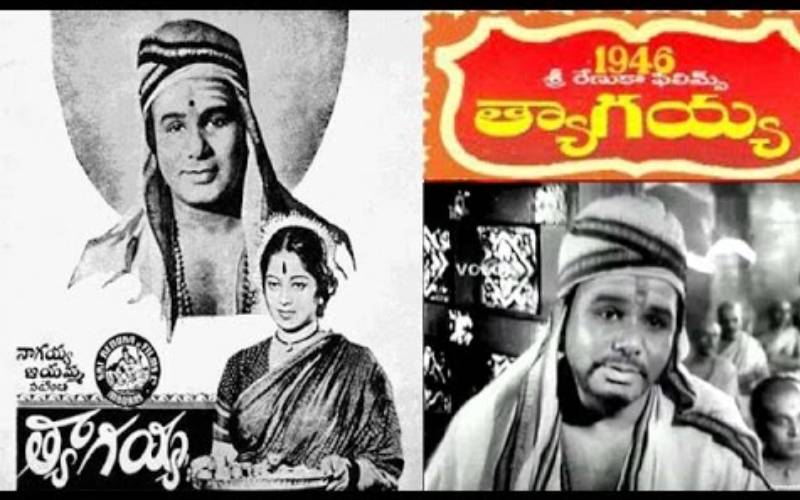
Thyagaraja (1767 - 1847) also known as a Thyagaiah was a well-known composer of Carnatic music. He was prolific and highly influential with regards to this musical tradition. Thyagaiah and his contemporaries Shyama Sastri, Muthuswami Dikshitar, continue to be regarded as the Trinity of Carnatic music. Thyagaiah had composed several thousand songs and about seven hundred are available with us today. His songs were in Telugu and were in praise of his favorite deity, Rama. Many of his songs are popular today. The most famous among them are known as 'Pancharatna Kriti-s' (Five-gem musical composition) and these are sung as a tribute during the Annual Thyagaraja Aradhana at Thiruvaiyaru (Thanjavur District, Tamil Nadu).
The composer was born Kakarla Thyagabrahmam in a Vaidiki Mulakanadu Brahmin family. Kakarla indicates his native region. The family had migrated from the Telugu speaking parts of the country to Thanjavur. Thyagaiah hero-worshipped the celestial Sage Narada and some people believed him to be Valmiki reborn. The composer passed away on Pushya Bahula Panchami and his last composition was ‘Giripai Nelakonna.’
Thyagaiah had learnt music under Sonti Venkata Ramanayya and was a child prodigy. He regarded music as a way to experience God's love. His songs focused on expression and he had shown a flair to compose songs quite early in life. His first song, ‘Namo Namo Raghavayya,’ in Desika Todi Ragam was inscribed on the walls of his house. The compositions of Thyagaiah are mainly devotional and philosophical in nature. They feature him usually in an appeal, in musings or giving a message to the public. While most of his songs are on Rama, he has also composed on Shiva, Devi, Ganesha, Muruga , Saraswathi and Hanuman.
Thyagaiah was invited to join the royal court but he chose to be a normal person. He was said to have composed the song, ‘Nidhi Chala Sukhama,’ on this occasion. The composer lived in Thiruvaiyaru for most of the time and there is information about him visiting Kanchipuram and Tirumala. He had met up with Upanishad Brahmayogin at the Brahmendral Mutt in Kanchipuram. Thyagaiah was immersed in Rama and had led a spartan life all along. He had not taken steps to record his songs. However, his students had noted them down. Lots of his songs got lost and now musicians around the world are singing them virtually in each and every concert. Every student of Carnatic music learns his songs. Thyagaiah had also composed two musical plays in Telugu, ‘Prahlada Bhakti Vijayam’ and ‘Nauka Charitram.’
The songs of Thyagaiah were taught by all the leading musicians of the nineteenth century and he was extremely popular. Annual Thyagaraja Aradhana became a popular event with several musicians performing with their instruments or singing in front of his Samadhi (Memorial). Movies based on his life became big hits. Two biopics by Chittoor V Nagaiah and Bapu Ramana, were loved by the movie-goers. Bombay Gnanam had made a short film on him and it was known as, ‘Endaro Mahanubavulu.’
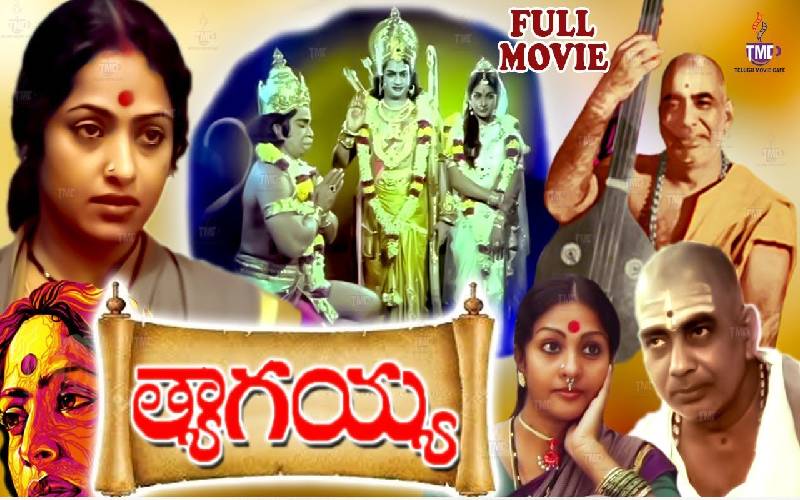
The first, ‘Thyagaiah,’ made in 1946 was considered to be a master piece. It was produced and directed by Chittoor V Nagaiah. This soul stirring film was a big hit and it had captured well, the truly extraordinary life of the saint-composer. The movie was made by Sri Renuka Films (Madras) and it ran for 186 minutes. While the music was rendered by the talented, V. Nagaiah, it was edited by Govind Dinkar Joshi. The Producers were Sri Duvvuri Narayana Reddy and V. Nagaiah. Cinematography was by Mohamed A Rehman. The Telugu movie had V. Nagaiah and B. Jayamma as the main stars. Jayamma comes in as the spouse, Kamalamba. The dialogues were rendered by Samudrala Raghavacharya and the dances were choreographed by Vedantam Raghavaiah.
Music was great and it had been handled by V. Nagaiah along with the Renuka Orchestra which was headed by the Trivellore Violinist Brothers. The lyrics for most of the 37 songs were by Samudrala Raghavacharya. Tamil songs were by Papanasam Sivan. Songs in Tamil and Hindi were sung by D. K. Pattammal and J. A. Rehman. The movie was a very big hit and it had collected over Rs.25 lakhs in just share alone. It was the first in Telugu to reach this level of success. The heroine, B. Jayamma (1915 - 1988), was a famous actor-cum-singer. She was part of a theatre group which was run by her husband, Gubbi Veeranna. Jayamma was a famous dramatist and politician.
Bengaluru Nagarathnamma was a famous devadasi those days. She had performed in hundreds of towns those days. This noteworthy singer was deeply attached to Thyagaiah and she devoted her wealth, time, for developing and nurturing his samadhi in Thiruvaiyaru. She lived in the holy town for some time and her involvement added to the luster of the Annual Aradhana.
The second movie on Thyagaiah was directed by Bapu in 1981 and directed by Mullapudi Venkata Ramana. K. V. Mahadevan had created the music and it was produced by Navata Arts. J. V. Somayajulu and K. R. Vijaya donned the main roles. The movie ran for 143 minutes and was much liked by the audience. It was showcased at the Indian Panorama of International Film Festival of India in 1982. This became a cult movie. Raj Gopal Rao played the role of Japesam, Ravi came in as Lord Rama, Sangeetha as Goddess Seetha, Arja Janardhana Rao as Hanuman. S. P. Balasubramaniam had done his best in the movie.
Somayajulu fits the role quite well and K. R. Vijaya comes in as a devout wife. The movie-goers enjoyed Thyagaiah doing Unjavritti (Receiving grains from householders by going door-to-door) and felt as though they had visited the residences along with Thyagaiah. ‘Jagadanandakaraka’ is another highlight in the movie. Lord Rama visiting Thyagaiah personally has been brought out well. The movie was appreciated by the general public and music-lovers as well. Many people were also motivated to learn music.
The 1946 Thyagaiah is 75 years old now. This movie was much appreciated by everyone. The Tulasi pooja in the movie is natural and is a record of the past. Nagaiah delivering the song, ‘Nagumomu,’ is fantastic. He has literally lived as Thyagaiah in the movie. The movie has been shot and edited very well. No wonder it was a success. The music was loved by all. Several lovers of music and connoisseurs enjoyed the movie.
“I remember my grandmother, Lalitha Bai, telling me about this movie. She was a great Vainika (Veena Player) and a singer. Grandmother was known to sing and play veena with utmost devotion. Her music-loving father, Setty S. N. Padmanabha Chetty, of Salem had enjoyed this musical. Grandmother shared these details with me when she watched, ‘Thyagaiah,’ made in 1981 at Coimbatore. My paternal great grandfather, P. A. Raju Chettiar had enjoyed both the movies based on the life of Thyagaiah (1946 & 1981). He was deeply immersed in the movie.” Many lovers of devotional music like him were carried away by the movies on Thyagaiah. The iconic musician remained an inspiration for the production of epochal movies based on his life.
Let us celebrate 75 years of the first movie on Thyagaiah in 2021 by savoring it along with our near and dear. The devotion and music of the Saint-composer, Thyagaiah, will bless us further.
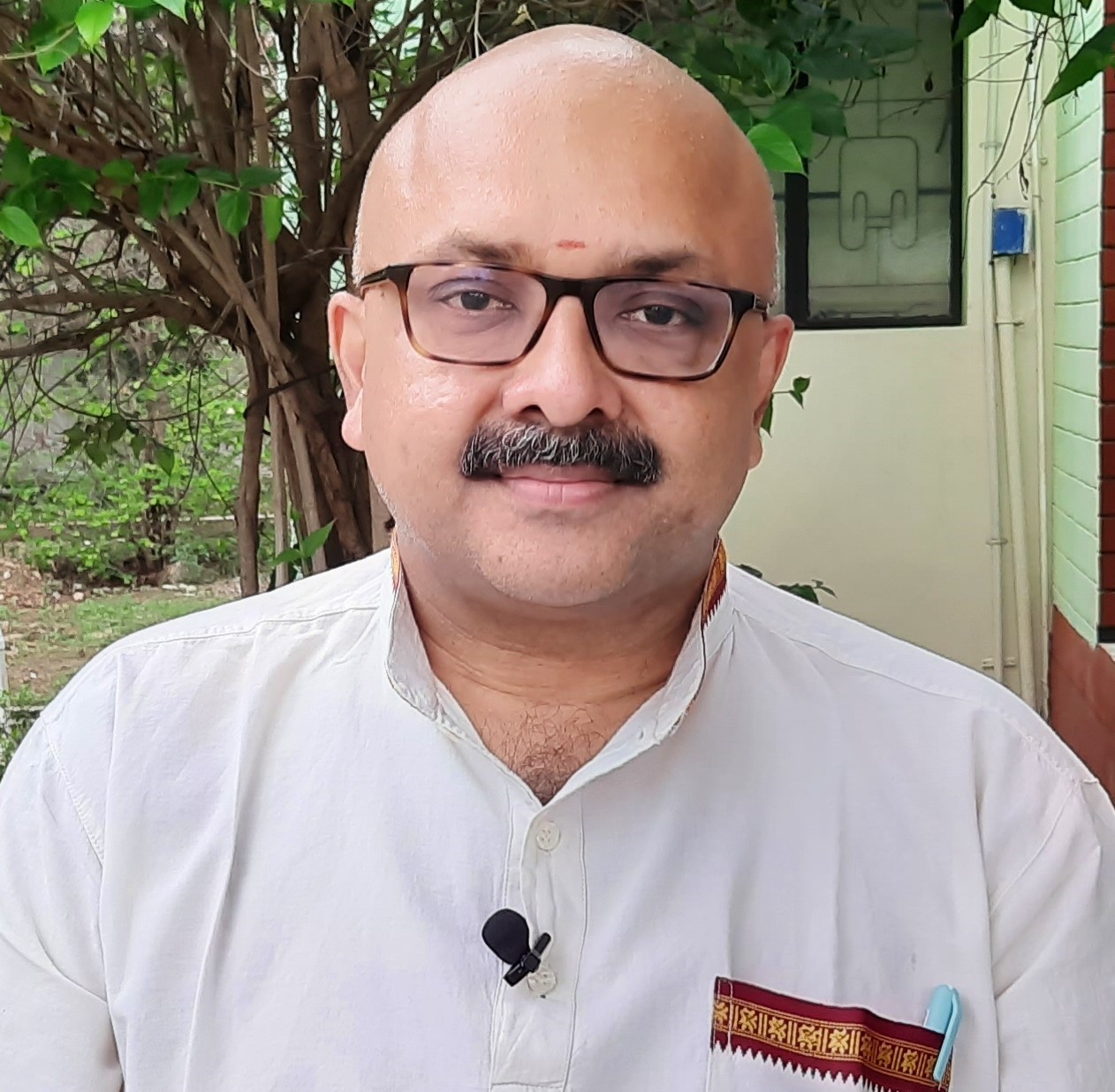
Mr. Rajesh Govindarajulu is one of the founding members of the Verandah Club Pvt. Ltd. He is a leading columnist, historian, jeweler, entrepreneur, and a heritage enthusiast who is earnestly working to revive the past in the light of the present. Experiential learning about the history of Coimbatore is his main course of interest and he is also a panel member of many colleges in the city.
NEXT ARTICLE
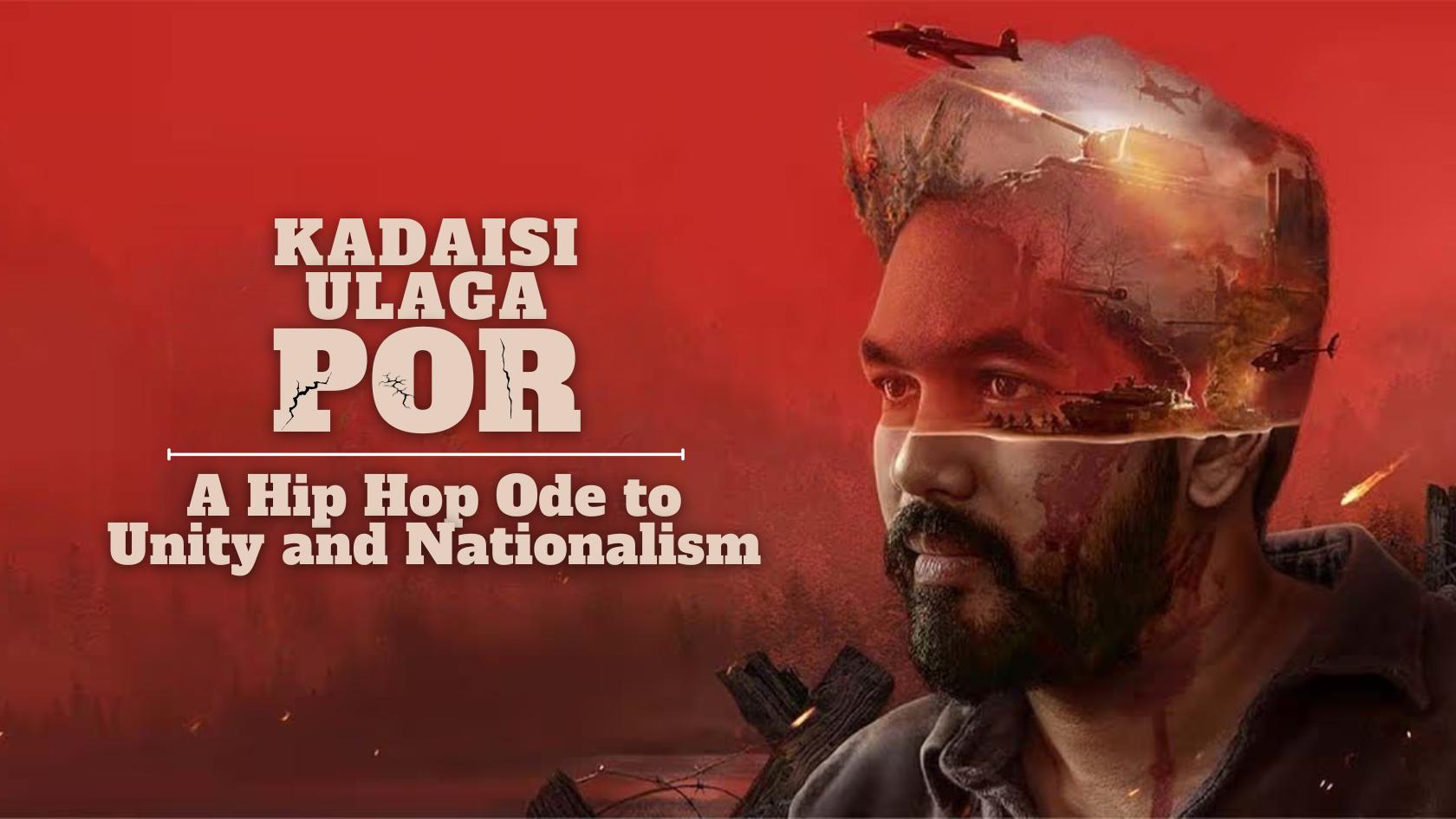
Hiphop Tamizha's "Kadaisi Ulaga Por" (The Last World War), released in 2024, transcends the typical action-packed sci-fi war movie genre. It embeds a...
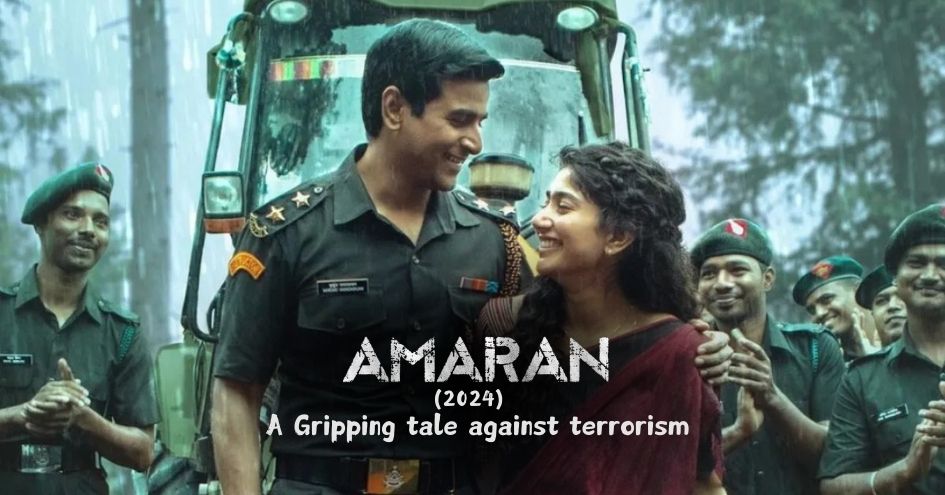
Creating war films is a challenging endeavor, and capturing the emotional struggles of soldiers and their families adds an even greater layer of com...
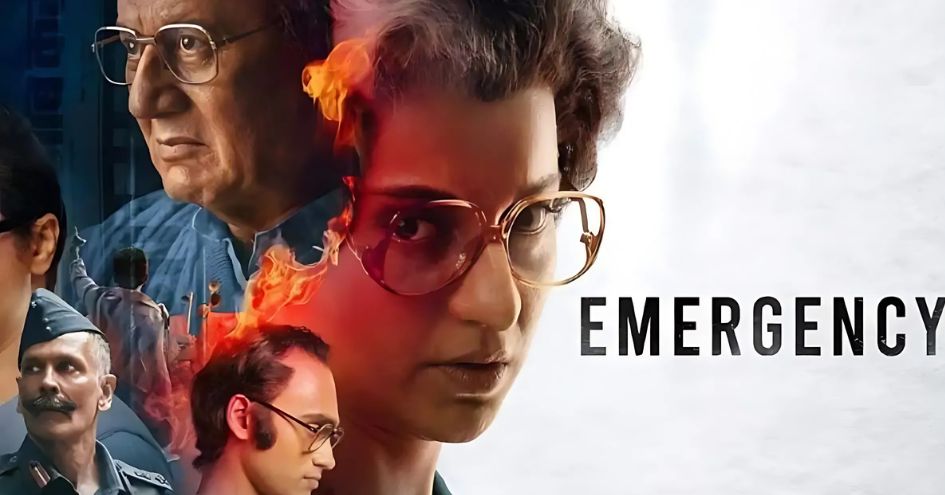
Emergency, directed by Kangana Ranaut, is a bold and gripping political drama that delves into one of Independent India’s darkest periods: the Emergen...